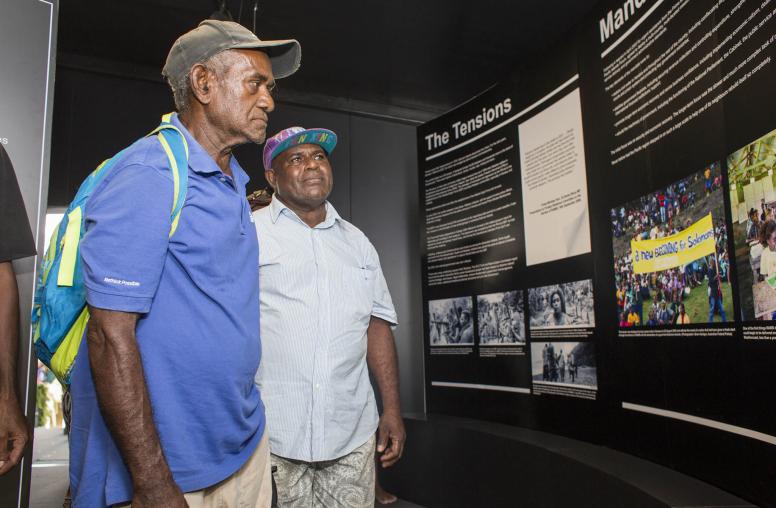Implementing Dayton in Brcko
On November 24, 1997, His Excellency Vice President Ejup Ganic of the Federation of Bosnia-Herzegovina spoke on "Implementing Dayton in Brcko" at an informal program sponsored by the United States Institute of Peace. He focused his remarks on the political status of the city of Brcko.

From left to right: Bosnia Ambassador Sven Alkalaj, USIP Exec. Vice President Harriet Hentges, Bosnia-Herzegovina Vice President Ejup Ganic, USIP Senior Fellow John Menzies
Control of Brcko has been hotly contested since May 1992, when the Bosnian Serbs gained military control over the city, and it was a paralyzing sticking point at Dayton in 1995. To keep negotiations from bogging down, all parties agreed to a two year "cooling off" period before making a decision about its status. Last year a committee made up of representatives of the Federation and the Republic of Srpska and an International Arbitrator decided to postpone the decision concerning control of Brcko until March of 1998.
Vice President Ganic argued that postponing this decision again will increase incentives to return to violent conflict in the area. Decisions must be made that will give the people access to vital rail lines, highways and trade links with Europe; because Bosnia is landlocked between Croatia and Serbian territories it lacks direct access to potential economic partners in Europe. This is important because economic growth in this area is the most effective means of preventing a return to war.
Dr. Ganic lives and works in Sarajevo, where he was elected in the first democratic elections in Bosnia-Herzogovina in 1990 as a Member of the Presidency. A scientist and professor of thermo-dynamics (Ph.D. from Massachusetts Institute of Technology in 1976), in May of 1994 he was appointed to his current position. The views expressed here are his alone and do not necessarily reflect the views of the United States Institute of Peace.
Speakers
- Ejup Ganic
Vice President of Bosnia-Herzegovina
Media Inquiries
Please contact Ian Larsen (+1.202.429.3870) or Lauren Sucher (+1.202.429.3822) in the Office of Public Affairs and Communications.




